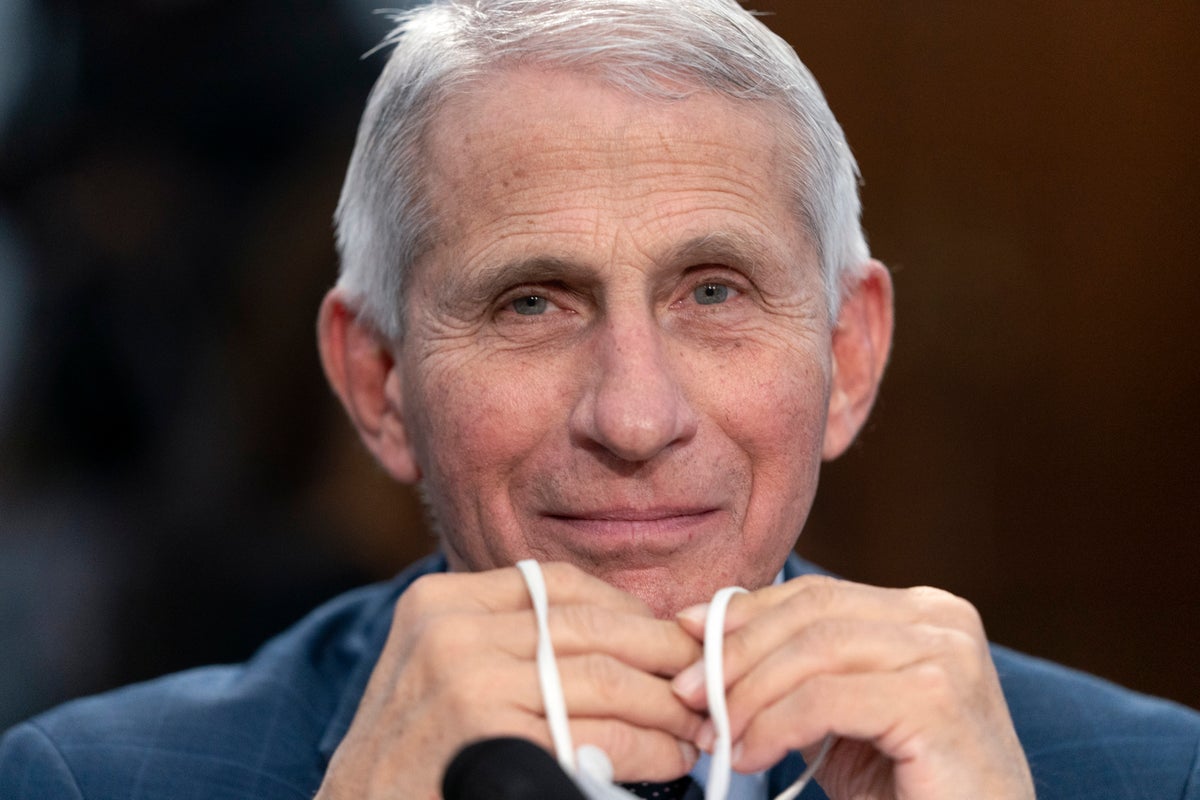
Dr Anthony Fauci, the nation’s leading infectious disease expert and chief White House medical adviser, will step down from government after nearly a half century of service, including guidance through the Covid-19 pandemic, in December.
The 81-year-old director of the National Institute of Allergy and Infectious Diseases has led the agency since 1984. He first joined the government organisation’s umbrella agency the National Institutes of Health in 1968.
He remained with President Joe Biden’s administration as its chief medial adviser following the emergence of the coronavirus pandemic in 2020 during the Trump administration.
“Because of Dr Fauci’s many contributions to public health, lives here in the United States and around the world have been saved,” President Biden said in a statement on 22 August.
“As he leaves his position in the US Government, I know the American people and the entire world will continue to benefit from Dr Fauci’s expertise in whatever he does next,” he added. “Whether you’ve met him personally or not, he has touched all Americans’ lives with his work. I extend my deepest thanks for his public service. The United States of America is stronger, more resilient, and healthier because of him.”
The departure of Dr Fauci, who has counselled seven presidents since Ronald Reagan, was not unexpected; he has previously announced plans to leave the Biden administration before the end of his first term, ending a government career in public health that spanned high-profile responses to the AIDS crisis and Covid-19.
Stepping into the role of director of the National Institute of Allergy and Infectious Diseases in the early 1980s, Dr Fauci helped steer the agency admonished for a lethally slow federal response to the AIDS pandemic, but he became a household name during Donald Trump’s presidency, navigating political attacks and a critical, chaotic public health response distorted by White House falsehoods about Covid-19.
Dr Fauci said in a statement that he is “not retiring” but will “continue to advance science and public health and to inspire and mentor the next generation of scientific leaders as they help prepare the world to face future infectious disease threats.”
“After more than 50 years of government service, I plan to pursue the next phase of my career while I still have so much energy and passion for my field,” he said.
Under the Trump administration, Dr Fauci contradicted the then-president and members of his administration over support for mitigation efforts and unproven treatments to treat Covid-19, as well as the American right’s refusal to address the seriousness of the public health threat, which has killed more than 1 million people in the US.
Despite the speed and efficacy of government-assisted vaccine development, Dr Fauci also has attributed the difficulty of a comprehensive response to the rapid mutation and contagion of the disease against a backdrop of patchwork public health infrastructure, conflicting guidance and the politically volatile, anti-science and partisan-driven response.
With his final months under the Biden administration, Dr Fauci will continue his “full effort, passion and commitment” in his current roles and assist with a leadership transition at the agency he has helped run for more than 30 years.
“I have no doubt that I am leaving this work in very capable hands,” he said. “Thanks to the power of science and investments in research and innovation, the world has been able to fight deadly diseases and help save lives around the globe. I am proud to have been part of this important work and look forward to helping to continue to do so in the future.”







